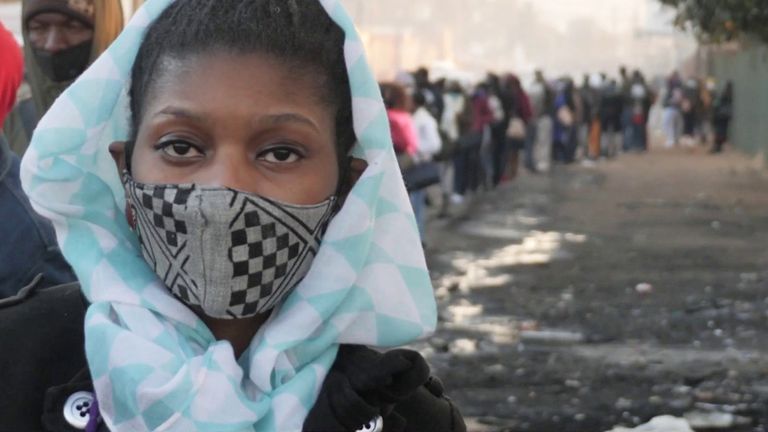COVID-19: What do we know about the second coronavirus variant found in the UK?
Less than a week after the UK learned of a new COVID-19 variant that is up to 70% more infectious, a second one has been found.
Here’s what we know so far:
Where did the second coronavirus variant come from and how many cases have been found?
Two cases have been detected in the UK and both were contacts of arrivals from South Africa in the past few weeks, Health Secretary Matt Hancock told a Downing Street news conference.
He said that England’s chief scientific adviser and chief medical officer were able to detect them early, after meeting virtually with their South African counterparts.
According to the Network for Genomic Surveillance in South Africa (NGS-SA), a government-backed institute responding to the pandemic, about 200 cases of the variant have been found in South Africa.
How transmissible is it?
Mr Hancock said it was “highly concerning” that the variant was “yet more transmissible” than the original strain – and also that it “appears to have mutated further” than the first new variant, though to an unknown extent.
Deputy chief medical officer Dr Jenny Harries added that the two variants have different mutations.
She said: “We have more information on the UK variant because we have been studying that in great detail with academic partners. We’re still learning about the South African variant.”
Will vaccines work on the South African variant?
Taking the same position as she did on the first variant, Public Health England’s chief adviser Dr Susan Hopkins said there is no evidence to suggest the Pfizer/BioNTech jab rolling out in the UK will not work on the South African one.
“There is strong evidence that the vaccine will work. The vaccine produces a strong immune response – and it’s broad and acts against lots of variations in the virus,” she said.
A member of the government’s New and Emerging Respiratory Virus Threats Advisory Group (NERVTAG), Professor Robert Dingwall, also believes the vaccine would work.
He told Sky News that scientists should be able to tweak the formulas to stay effective against certain variants, but that it could be an “arms race” between the jabs and mutations.
What new rules are in place in response?
Anyone who has travelled from South Africa to the UK in the past fortnight – and their close contacts – must quarantine immediately, Mr Hancock said.
“We’ll be changing the law to give this legal effect imminently. Now, these measures are temporary while we investigate further this new strain,” he said.
Sky News understands incoming flights from South Africa will be stopped.
Is the government doing enough to control the spread of yet another variant?
Dr Hopkins said she is “pretty confident” the new quarantine rules for incoming travellers from South Africa will “help” control its spread.
“Clearly this needs to be continually monitored and we have a genomic system in place to do that, and we are looking to constantly enhance the detection of cases found among travellers,” she said.
Dr Harries added that following usual measures such as mask-wearing, social distancing and room ventilation would still fight any mutations.
“Although the virus appears in both cases to be more transmissible, the current evidence shows the actual disease that one gets is no different, and so all of the basic measures which we are continually trying to do… will work against all the different variants,” she said.
What more do we know about its genetic make-up?
It has multiple changes in the part of the virus that binds to cell receptors, which are targeted by the antibodies that form after infection to protect people from future ones.
That’s according to NGS-SA, whose researchers are investigating whether the changes could allow the variant to dodge antibodies and allow someone to be re-infected with COVID-19.
Did scientists expect these new variants?
In short, yes.
Professor Dingwall said “it’s what viruses do” and he is aware of about 4,000 variants since the start of the pandemic, but he said most are minor and do not impact contagion levels.
“This time round, there looks like there’s something to be more concerned about,” he said.
“Both (the South Africa and UK variant) seem to transmit far more easily… clearly that causes much more pressure on the health service.”
Source: Read Full Article






